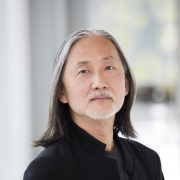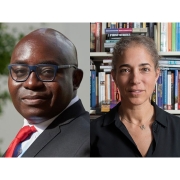Physicists Help Spot Explosive Counterpart of LIGO Discovery
Masao Sako, a member of the Dark Energy Survey and an associate professor of physics and astronomy, was on vacation with his family when he got the news that the Laser Interferometer Gravitational-wave Observatory, or LIGO, had made a fifth detection of gravitational waves, which expand and contract space time. While the previous four detections were a result of merging black holes, these waves originated from the merger of two neutron stars, collapsed stars that form the densest form of observable matter in the universe, an event that had never before been observed. Unlike black holes, which don’t emit light, neutron stars are more likely to give out an optical signal when they merge, making them easier to locate.
Sako immediately called his grad student Dillon Brout, who was working to get information from LIGO in real time and produce maps predicting roughly where the source of the waves should be in the sky to help his collaborators find it using the Dark Energy Camera, or DECam. Scientists on the Dark Energy Survey joined forces for this effort with a team of astronomers based at the Harvard-Smithsonian Center for Astrophysics, or CfA, working with observatories around the world to bolster the original data from DECam. Their images captured the flaring and fading over time of a kilonova, an explosion similar to a supernova, but on a smaller scale, that occurs when neutron stars crash into each other, creating heavy radioactive elements.
“It’s unlike anything else that we've seen,” Sako says. “Ordinary stellar explosions usually get bright on timescales of a week and take months for it to fade. This thing pretty much disappeared in two weeks.”
Click here to read the full story.





